Rental Lease Agreement
Review Rating Score
A lease rental agreement is a contract between two or more parties, a lessor (landlord) and a lessee (tenant), whereby the lessee is granted access to a property for a certain amount of time. There are usually certain conditions attached to this agreement regarding how and by whom the property may be used.
What is the difference between a rent agreement and a lease agreement?
Here are the most important differences everyone who is asking himself or herself this question should understand:
Rental Agreement; A rental agreement differs from a lease agreement because it is not a long-term contract and usually occurs on a monthly basis. Such a month-to-month lease agreement expires and then renews each month upon agreement of the parties involved. So they often have no long-term requirements. At the end of each thirty-day period, both you and your tenant are free to change the rental agreement (subject to local rental laws). Rental agreements, therefore, have more leeway. However, either the tenant or the landlord can alter the terms of the agreement at the end of the period. Think about changes like raising the rent asking the tenant to vacate the property or modifying the initial terms agreed. However, often both landlord and tenant need to mutually agree and give a period of notice before any modifications can be made. Another advantage is that rental agreements are useful if you’re having a problem attracting new tenants, or if your property is in an area that caters to students or professionals who move around often. A rental agreement typically renews automatically after each rental period has finished. The landlord has the option to raise the rent or request that the tenant quit the premises without violating the rental agreement. A landlord must give proper notice to quit, however, prior to requesting the tenant leaves the property.
Lease agreement; is a contract between two or more parties, a lessor (landlord) and a lessee (tenant), whereby the lessee is granted access to a property for a certain amount of time. There are usually certain conditions attached to this agreement regarding how and by whom the property may be used. A lease agreement is an agreement made between a landlord and a tenant which covers the renting period of a property. In comparison to rental agreements, a lease has a set term, often for long periods of time, usually a period of 1 year, during which the tenant agrees to lease the property. The lease is therefore very specific regarding the responsibilities of both parties during the lease and it includes all the necessary terms to provide protection to both parties. During the duration of the lease, both must respect the agreement. For example, if the tenants agree to make quarterly or monthly payments and follow the other obligations in the lease. The length of a lease and the amount of monthly rent are documented and cannot be changed that easily. This ensures that the landlord cannot at random just raise the rent fee and the tenant cannot just leave the property whenever he or she wants to, without any consequence. The lease agreement is effective for the specific time mutually agreed and is then considered ended. If the tenants wish to remain in the property, both parties must enter into a new agreement. So, therefore, neither party is able to change any terms until the lease period expires. Unless both parties mutually agree to change the terms. A tenant can’t vacate the property without breaking its lease, in which case they can be held liable for the rest of the rent due under the lease, or can be required to find someone else to take over the lease. After the lease agreement is finished, the landlord is not obligated to renew the lease again based on the same terms. He or she is free to change terms and rental amounts if desired. For this reason, some tenants prefer to sign a longer-term lease if the monthly rent is very reasonable and in an area where rents are likely to increase during the term of the lease. Leases are useful for those landlords who want to lock in a tenant for a specific period of time. If you have a mortgage payment to meet, for instance, knowing you’ll have a tenant for the next year can help you budget your expenses. Most tenants are familiar with long-term leases and will not have a problem committing or rent values rise.
What should I include in a Rental Lease Agreement?
Tips on how to write the best lease:
- Make sure to include all responsible parties; When there are multiple adult individuals occupying the leased premises, it is important that they be listed as tenants or lessees. This is to ensure that they are jointly liable for any breach of the lease contract. Naturally, the lessor or landlord(s) must also be duly listed on the lease contract to clearly indicate who is liable for any breaches that apply on the landlord’s end. For the sake of being most informative, you can include pertinent contact information such as addresses, telephone numbers, and email addresses.
- Be clear with all payment and deposit; It seems like a no-brainer, but it still has to be emphasized how important it is to include all monetary provisions in a lease contract. Apart from the amounts that must be paid as rent and as a security deposit, other information that must be included in the frequency of payment (monthly, quarterly, semiannually, or annually), fees, penalties for late payments, acceptable modes of payment (post-dated checks, bank deposit, etc.), and where transactions must take place if applicable, among other stipulations.
- Summarize other fees; It is important to outline other fees or services that may come up during the lease, and clearly, indicate which party is responsible for each. Are there utility bills, connection fees, or other charges from you or outside providers? Who is responsible for what types of maintenance and which costs? What are and how much are the fees in the instance any of the terms in the contract are breached? Be especially forthcoming about fees that may not immediately come to mind for tenants, like those for parking privileges, Internet access, and condo fees. Not informing them could mean you run the risk of having to make the payments yourself.
- Include all possible rules, disclaimers, limitations, and policies; Make sure that it is clearly stated in your policies how the leased property can or cannot be used or occupied. This includes policies on subletting, pets, if and how many visitors are allowed, if alterations or improvements can be done on the property, and the like. When all this information is clearly detailed in the lease contract, the lessees will not have the opportunity to feign ignorance of the rules should issues arise.
After downloading this simple residential rental lease agreement template and filling in the blanks, you can easily customize the style, typography, details, and appearance of your Lease template. If this isn't the right letter that you are looking for, then certainly take a look at the other letters that Bizzlibrary.com has to offer. We have many letters ranging from cover letters to business letters and thank you notes.
Is the template content above helpful?
Thanks for letting us know!
Reviews
Jonathan B(6/18/2021)
Very good rental lease!
Vonda Mejia(6/18/2021) - NZL
Great work, thanks
Julianne Holloway(6/18/2021) - GBR
This is very helpful sir
Last modified
Delivery Instant Download
Your file will be available for download once payment is confirmed. Here's how.
Our Latest Blog
- The Importance of Vehicle Inspections in Rent-to-Own Car Agreements
- Setting Up Your E-mail Marketing for Your Business: The Blueprint to Skyrocketing Engagement and Sales
- The Power of Document Templates: Enhancing Efficiency and Streamlining Workflows
- Writing a Great Resume: Tips from a Professional Resume Writer
Template Tags
- lease agreement template
- lease agreement template word
- simple lease agreement template
- property lease agreement template
Need help?
We are standing by to assist you. Please keep in mind we are not licensed attorneys and cannot address any legal related questions.
-
Chat
Online - Email
Send a message
You May Also Like
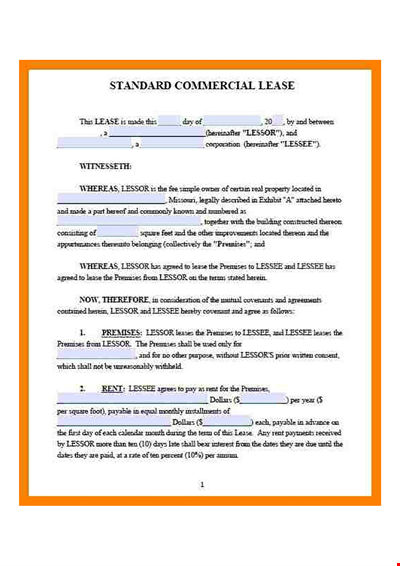
Sample Property Lease Agreement TemplateFree Download
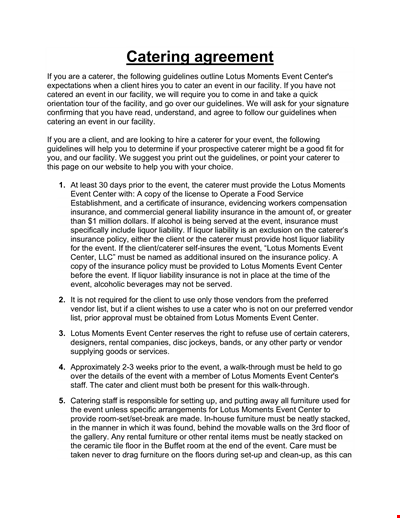
Event Catering Agreement Template - Plan Your Event with Center Lotus Moments
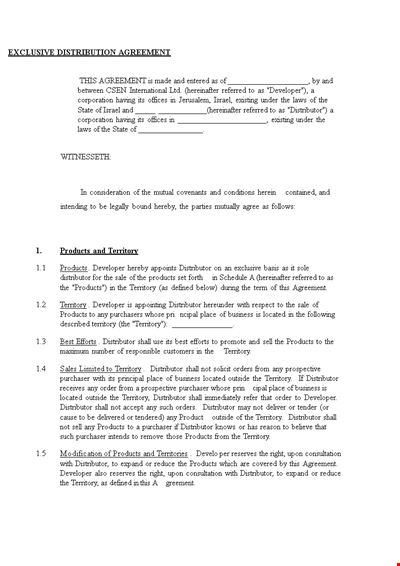
Exclusive Distribution Agreement Form Sample | Agreement for Developer & Distributor

Create a Schedule Contract Payment Template for Corporations

Free Non-Disclosure Agreement Form | PDF Format | United States Classified Information
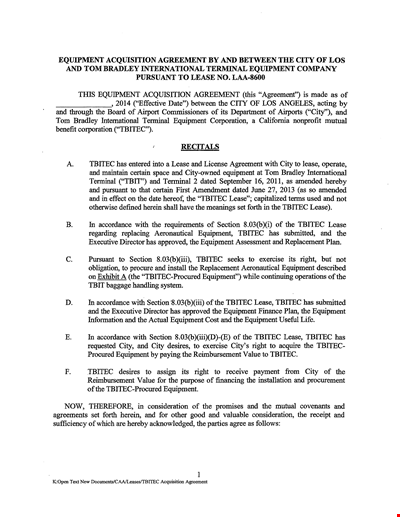
Equipment Acquisition Agreement Template: Ensure a Smooth Equipment Acquisition Process | TBITEC
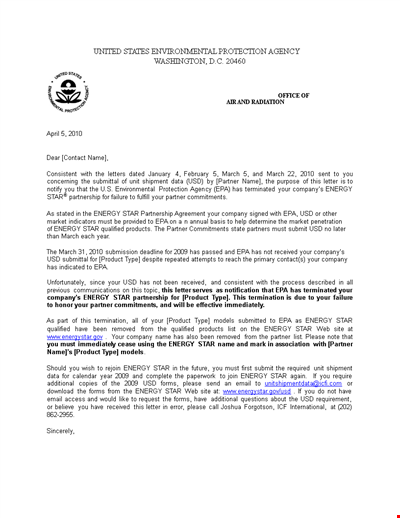
Download Partnership Termination Letter Template - PDF Format | Energy Partner Template
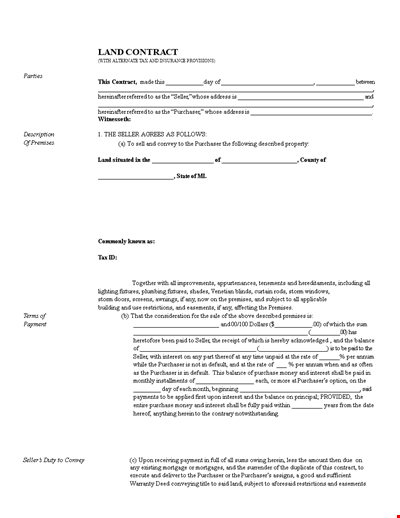
Free Printable Land Contract Form - Create a Contract for Purchaser and Seller

Vendor Contract Template for Efficient Agreement, Number System & Deliverables

Contractor Capability Statement Template for Project Contractors
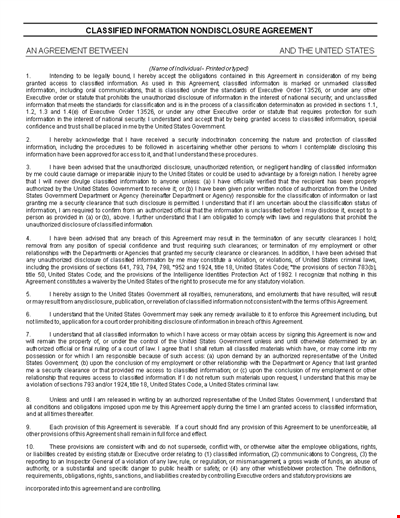
Non Discloser Agreement Form | PDF | Protecting Information | United States | Classified
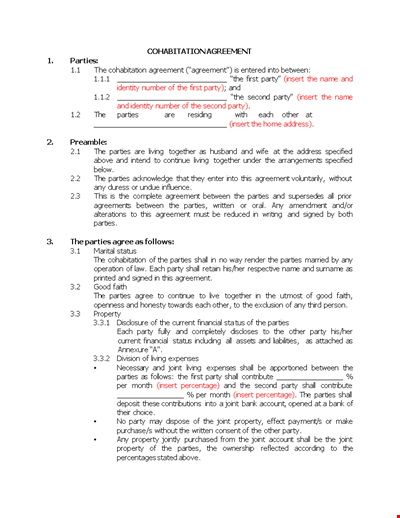
General Cohabitation Agreement Template | Property Agreement with Parties | Shall and Parties

Office Design and Construction Fee Amendment

Nominee Shareholder Agreement Template for Corporation | Shareholder's Rights
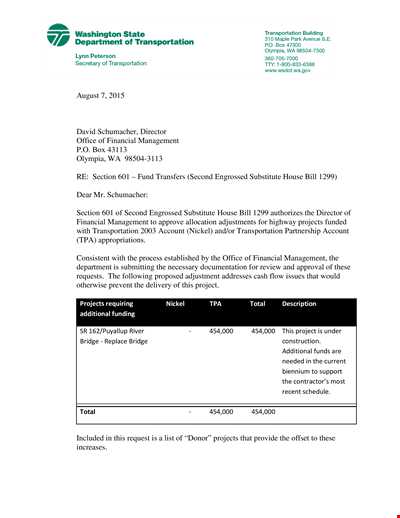
Sample Fund Transfer Approval Letter for Project: Total Additional Funds - Bridge
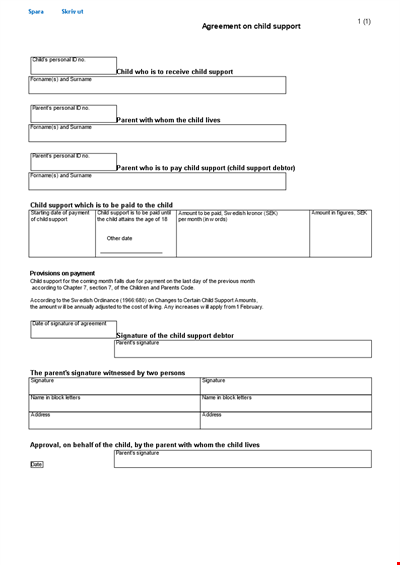
Create a Fair and Effective Child Support Agreement | Support, Parent, Signature


